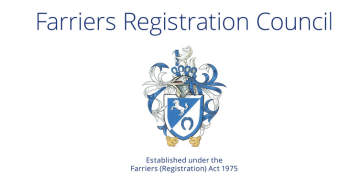Pilots of Ofsted’s autumn visits suggest that the FE and skills sector is more than rising to the challenges of these highly unusual times, writes Paul Joyce
In July we announced that we would be carrying out visits across all the areas we inspect this Autumn – schools, further education and skills, early years and children’s social care.
The visits are not inspections and won’t result in a graded judgement. They have a simple but important aim – to reassure parents, learners, employers and government about what providers are doing to get education and training back up and running, and to make sure that learners are safe.
Over the past fortnight we’ve been piloting these visits across FE & Skills providers, testing our approach before the full visits begin in earnest later this month. From my point of view, it’s been striking just how receptive the sector has been to the visits and how well providers have engaged with the process.
Learning from our pilots
The pilots were about making sure that our approach is sound. We’ve done 14 pilot visits, covering a range of providers at all grades, across each of Ofsted’s regions.
We visited independent learning providers (ILPs), one major national provider, community learning and skills providers, further education and sixth form colleges, and an independent specialist college. Thirty inspectors took part, around a third of our HMI workforce. These inspectors are now back in their regions, sharing their perspective and helping to train their colleagues.
Overall, the pilots have been very successful. They show that our methodology works, and that the visits work in practice, despite the unusual circumstances we all face. We’re confident that we can carry out the visits safely, with minimum disruption to provider’s day to day business.
Our inspectors have been made to feel very welcome. Providers taking part really understood our rationale and embraced the visits as a constructive and collaborative process. Leaders and other staff were rightly proud of what they’d achieved, and what they have done to get learners up to speed after so long away. Some found the visit a relief, others said it was reaffirming – a chance to have their hard work acknowledged.
Safety is our priority
The pilots also allowed us to see what the visits would be like with social distancing rules in place. Arrangements will obviously vary from provider to provider, so our visit teams will abide by whatever providers have put in place to keep learners safe. The safety of our staff, and that of learners and provider staff is, of course, our utmost priority.
This example from one large college group gives an indication of how a visit can work in practice. Our visit team (two inspectors) were set up in a large meeting room that allowed for social distancing. They stayed in the room for the whole day, while small groups of senior leaders, teachers and learners joined them for discussions – around 9 meetings over the course of the visit. The room was cleaned between meetings. We didn’t make any learning observations, carry out deep dives, or move around the college.
What will the visits focus on?
Visits will be based around three themes, a set of conversations with leaders and staff. First, we’ll be asking about the strategic actions taken to maintain the curriculum or get it back up and running. Second, what have you been doing operationally to deliver online and face to face learning. And finally, we want to talk about safeguarding. How are you making sure that learners are safe in these unusual circumstances. We’ll summarise these discussions in a published report, although for our pilot providers this won’t be published.
The visits will take place over two days, but these will be shorter days – starting later than an ordinary inspection and finishing earlier. This frees up provider staff in the mornings and keeps disruption to a minimum.
The way forward
There’s no doubt that colleges and other providers have been up against it since the lockdown in March. In the ILP world (largely apprenticeships and adult training) the situation is very tough. Some providers have ceased training, and we know that some apprentices haven’t been able to return to their jobs after furlough.
We are acutely aware of how difficult the past few months have been, and our visit teams are sensitive to this. We are not here to make life difficult. Ultimately, we want to understand the challenges the sector faces, so we can help government and policymakers understand them too. And we hope that our published reports will be useful to providers as they consider their own approaches, sharing good and innovative practice.
Given the hunger for more information about effective online learning, we’ll also be using our visits to add to the debate about what works. In July, we published some interim findings from our online learning review. The visits will build upon this work, and we hope to publish some more findings early next year.
It’s really good news that those taking part in the pilots were positive about their experience. This, combined with the fact that parents, learners and employers want to know how well prepared providers are, reinforces the importance of our visits. And while it’s a small sample, our pilots suggest that the further education & skills sector is more than rising to the challenges of these highly unusual times.








It is really good to see Ofsted acknowledging publicly that the further education & skills sector is more than rising to the challenges of these highly unusual times.
It is regrettably, most unfortunate that there is very little evidence to suggest that the inspectorate has risen to the challenges of this extraordinary time.
The FES sector has had to respond to the pandemic without any support from HMI. The inspectorate ran away from the sector in March and now relies entirely on the goodwill of FES organisations to bring them up to speed with what is happening on the ground.
What’s more, as this piece confirms that the primary reason for the visits is to provide free staff development for HMI who have no experience of teaching or leading during the pandemic. It should come as no surprise that in the space of two weeks no less than thirty HMI, around a third of the FES HMI workforce, have scurried into these visits to extract as much information as possible from providers. We can expect many other HMI to be doing same in the coming weeks so that they can quickly disseminate their findings back in their regions to train up their inexperienced colleagues before the full visits begin in earnest later this month.
Ofsted may well claim that, the pilots have, overall, been very successful. But then we might ask successful for whom? It is clear that the visits have a simple and urgent aim for the inspectorate, however how successful have they been for FES organisations? What have they gained from the visits? Whilst inspectors may be learning much for themselves, what are providers learning? What can HMI who left FES organisations to fend for themselves in March offer in return during the visits?
“Given the hunger for more information about effective online learning, [Ofsted will] also be using our visits to add to the debate about what works.”
Does this mean Ofsted didn’t know before?
On the Ofsted blog, there’s only one article to date: https://educationinspection.blog.gov.uk/?s=%22Online+education%22
Given the rise of online learning and virtual schools, surely Ofsted expertise would have had online learning signposted for schools prior to the pandemic? Or am I just looking in the wrong place?…
The visits will be very helpful to some providers where HMI have the relevant expertise and a supportive ‘bedside manner’ as there is bound to be lots of ‘off the record’ advice given. For others, they will be a waste of time and as Ofsted figured out for themselves years ago, you don’t learn the true story by sitting in meetings with managers. Which is exactly what 90% of these visits are all about. So any pronouncements like this need to be very guarded…
I am pretty sure the visits will not be much help to any providers Richard. What do you mean by relevant experience? What kind of advice can HMI give on or off the record?
Ordinarily HMI bring much expertise to meetings with staff but these circumstances are extraordinary and HMI have no personal experience of working in FES organisations during a pandemic. They have no personal experience of dealing with the challenges FES organisations have faced.